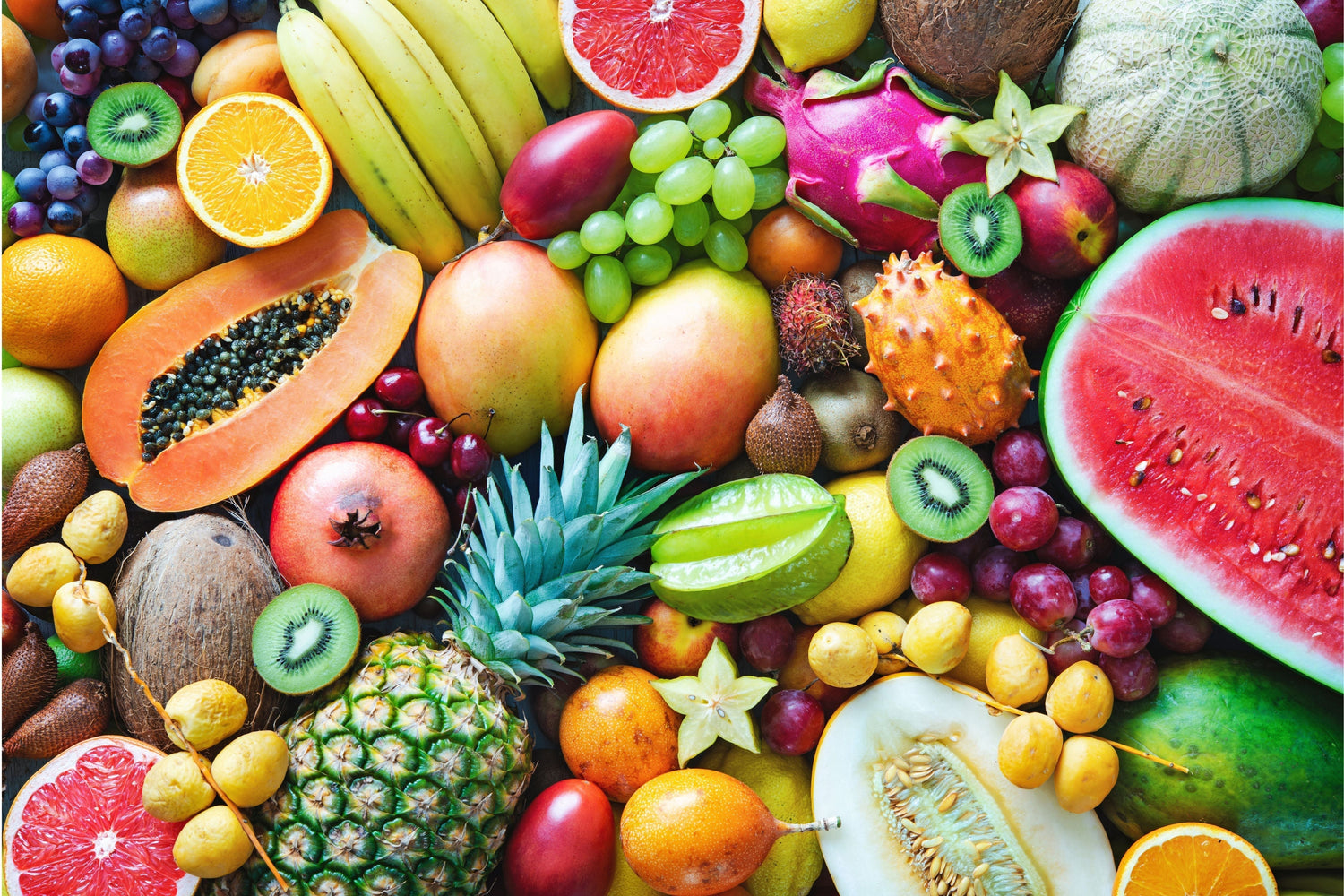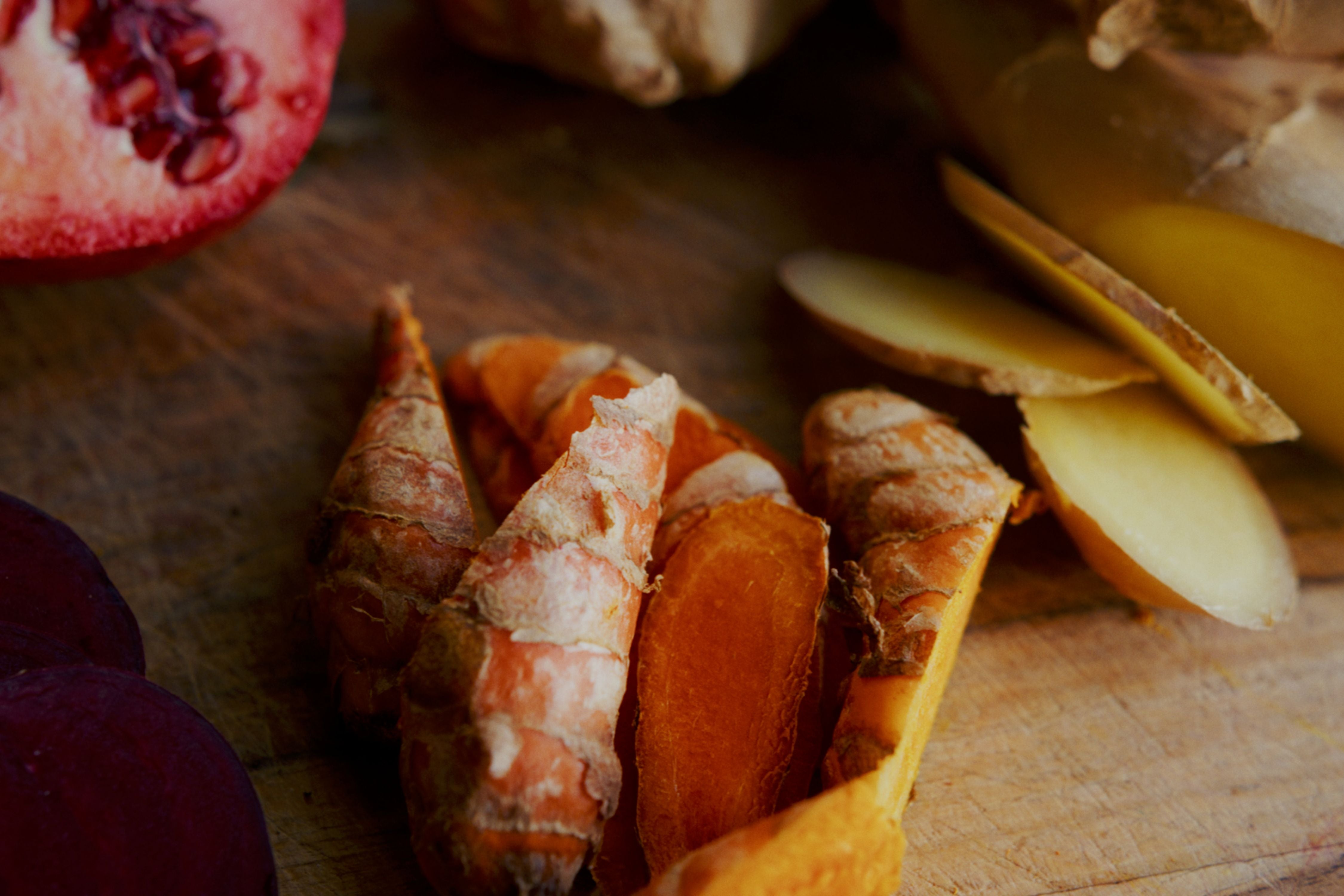By Dr. Brandon Johnson DC, CCSP® -Doctor of Chiropractic [Co-Founder of Voli]
I’m a chiropractor, Certified Chiropractic Sports Physician, and co-founder of Voli, with years of training in nutrition and hands-on experience with patients and athletes. Lately, I’ve noticed the internet freaking out about natural flavors, claiming they’re unhealthy or toxic. Let’s cut through the noise, examine what they really are, and see why science says they’re not the villain they’re made out to be.
What Are Natural Flavors, Anyway?
Natural flavors sound mysterious, but they’re straightforward. The FDA defines them as substances derived from natural sources—like fruits, vegetables, herbs, spices, roots, meat, or yeast—that enhance a food or drink’s taste. Think vanilla extract from vanilla beans or citrus oil from orange peels.
These compounds are extracted and concentrated using methods like distillation, solvent extraction, enzymatic modification, or fermentation, then added to products to make them tastier without relying solely on sugar, salt, or artificial additives.
- Distillation uses heat or steam to vaporize and collect flavor compounds (think essential oils).
- Solvent extraction pulls flavors out with liquids like water, ethanol, or sometimes hexane.
- Enzymatic modification uses natural enzymes to tweak compounds, enhancing taste.
- Fermentation relies on microbes to break down raw materials, creating flavors like those in cheese or wine.
In my work, I see natural flavors in everything from protein powders to electrolyte drinks—products I recommend to patients looking for clean, functional options. But the internet claims they’re “chemicals in disguise” or “processed garbage.” Sure, they’re processed—extracting flavor from a strawberry isn’t as simple as squeezing juice—but that doesn’t make them inherently harmful. As a nutrition nerd, I care about what the data says, not the fear factor.
The Internet’s Beef with Natural Flavors
Scroll through X or skim a wellness blog and you’ll see the accusations pile up: “Natural flavors are full of MSG!” “They’re secretly synthetic!” “They cause inflammation and gut issues!”
It’s dramatic, and I get why it freaks people out. No one wants to feel duped by a label. But these claims often lean on anecdotes or misread studies—not hard evidence.
Take MSG, for example. Some natural flavors, like those from yeast extract via fermentation, can contain trace glutamates—amino acids naturally found in foods like tomatoes and cheese. The internet equates this to synthetic MSG, claiming it triggers headaches or worse. But decades of research, including FDA reviews, show MSG (and its natural cousins) is safe for most people at typical levels.
Then there’s the “processed = bad” argument. Yes, natural flavors are extracted—but processing isn’t a dirty word. It’s how we get coffee, olive oil, even stevia (which I’ve written about before). The real question is safety, not the process itself.
Why Natural Flavors Aren’t Harmful
First off—safety. The FDA classifies natural flavors as GRAS (Generally Recognized As Safe) based on extensive toxicological data and hundreds of studies. These compounds are used in tiny amounts—often less than 1% of a product. Their Acceptable Daily Intake (ADI) is set far above what you’d ever actually consume.
In my practice, I’m cautious about overloading patients with additives. But the science on natural flavors is reassuring—unlike high fructose corn syrup, which has a clear metabolic downside.
What about health impacts? Studies, including those from the National Institutes of Health, find no consistent link between natural flavors and inflammation, gut dysbiosis, or chronic disease. Compare that to artificial sweeteners like aspartame, where some data suggests gut microbiome shifts, and natural flavors come out looking tame.
I’ve had clients ditch flavored supplements out of fear, only to feel no different—classic nocebo effect. The body’s fine with these compounds because they’re not foreign. They’re just concentrated versions of foods we’ve eaten for millennia.
And the “chemical” label? Everything’s a chemical. Water is H2O. Natural flavors are molecules like limonene (from lemons) or vanillin (from vanilla). They’re not lab-conjured from scratch—they start with nature.
At Voli, we prioritize transparency. I’d flag anything sketchy, but natural flavors don’t trip my alarm bells.
Which Methods Are Healthiest?
Not all extraction methods are equal. As a health practitioner, I’ve got preferences:
- Distillation is my top choice. Clean and simple—just steam or heat to capture flavor, no residues, no additives.
- Fermentation is a close second. It’s nature’s way of flavoring—microbes do the work, as they have for centuries.
- Enzymatic modification is solid but feels a bit “labby.” Still, it’s natural and safe.
- Solvent extraction is my least favorite. Water or ethanol? Totally fine. But petroleum-based solvents like hexane? Effective but not my go-to, even if FDA-approved.
They’re all technically safe, but distillation and fermentation align best with my natural-is-better philosophy.
The Extraction Factor: My Preference
Extraction matters. Some companies cut corners with solvent extraction using chemicals like hexane. Even if residues are minimal and within limits, they don’t align with how I approach health.
I prefer distillation or fermentation—clean, traditional methods that preserve the plant’s integrity. Distillation is like brewing tea; fermentation is how we’ve made cheese, beer, and kimchi forever. At Voli, we seek ingredient partners that lean into these techniques over shortcuts.
If you're curious, check labels or ask brands how they extract their flavors. It's a small habit that adds up to smarter nutrition.
My Take: Practical and Evidence-Based
Working with athletes, parents, and health-focused folks, I see natural flavors as a non-issue. They make functional products palatable—like a tasty electrolyte drink or a flavored protein powder—without piling on sugar.
Sugar spikes sabotage performance and recovery. I’ve seen it firsthand and studied it extensively. Natural flavors help avoid that. There’s no credible evidence showing they harm your health when sourced and used responsibly.
Are they perfect? No. If you're a purist, stick to whole foods. But if you want practical, performance-supporting nutrition? Natural flavors are a great tool.
The internet loves a villain—and right now, natural flavors are it. I say ignore the hype, check the data, and trust your body.
Final Thoughts
Natural flavors aren’t the health hazard the internet claims. They’re safe, regulated, and useful—especially when extracted with care through distillation or fermentation.
As a doctor focused on evidence-based wellness, I’m not losing sleep over them—and neither should you. Next time you see “natural flavors” on a label, don’t panic. Do your homework if you're curious, but know: nature’s still got your back.
Dr. Brandon Johnson DC, CCSP®
Chiropractor, Certified Chiropractic Sports Physician, and Co-founder of Voli
With advanced training in sports nutrition, biochemical nutrition, and functional supplementation, Dr. Johnson is dedicated to helping people optimize their health through evidence-based, natural solutions.



Leave a comment
All comments are moderated before being published.
This site is protected by hCaptcha and the hCaptcha Privacy Policy and Terms of Service apply.